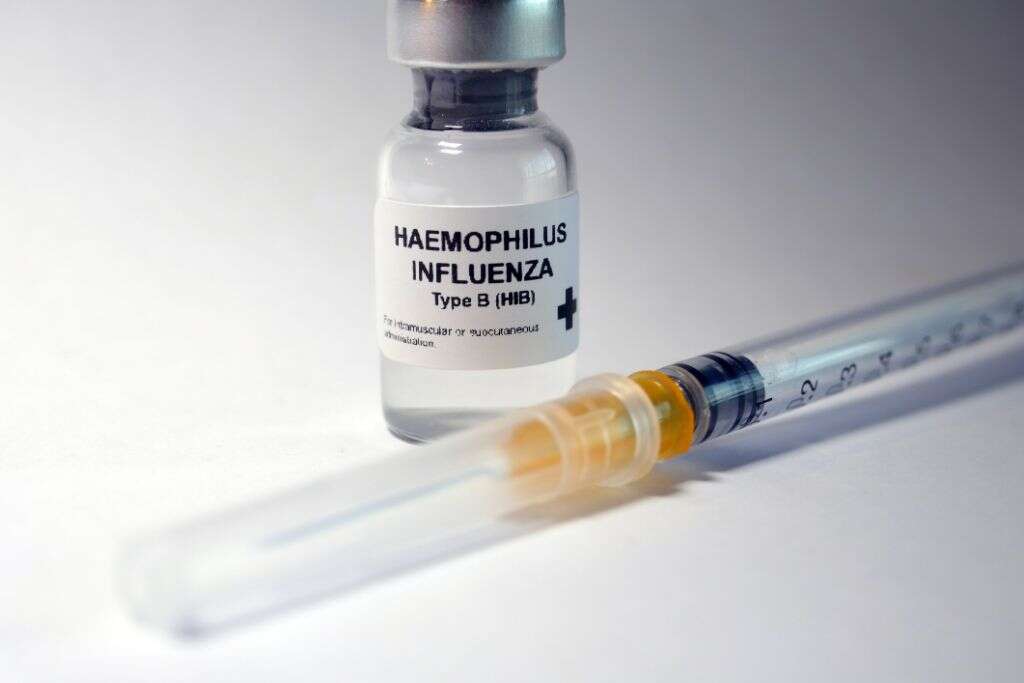What Is Epiglottitis?
When we are eating, it is important that the food we swallow does not go into our lungs, and that it goes down into the digestive system instead. This is achieved with help from the epiglottis, which closes the airways when we swallow. This helps ensure that our food goes down the right way.
When we are not eating then the epiglottis is left open to ensure air can pass through smoothly. Sometimes, however, the epiglottis might develop a problem and it can become very swollen as a result. This can block the passage of air to and from the lungs in what is potentially a very dangerous situation.

1. Epiglottitis
Epiglottitis is a condition where the epiglottis is swollen. This is potentially very dangerous because it can swell to the point where it covers the windpipe completely. This will then mean that air is unable to pass into the lungs, and not being able to breathe is an immediate and real threat to the patient’s life.
There are several potential causes of epiglottitis. They can be caused by viral or bacterial infections, while injury to the epiglottis can also result in the condition. Regardless of the cause, the seriousness of the condition means that the patient must be found immediate medical assistance.

2. Hemophilus Influenzae Type B
The Hemophilus influenzae type B virus is responsible for a number of potentially serious medical conditions. This includes pneumonia, arthritis, infections of the bloodstream, and even meningitis. The virus is also responsible for a large number of cases of epiglottitis.
Some people will have the virus without showing any symptoms whatsoever. They will still be contagious, however, and the virus can be spread in droplets when an infected person coughs or sneezes without covering their nose and mouth. Epiglottitis caused by the Hemophilus influenzae type B virus is now much rarer in developed nations thanks to the development of a vaccine.

3. Pneumococcus
Pneumococcus, also known as streptococcus pneumoniae, is a bacterium that is one of the most common causes of pneumonia. It is also sometimes responsible for instances of blood infections, ear infections, and meningitis. In addition, it is the cause of epiglottitis in some cases.
Other types of bacteria can also be responsible for epiglottitis. These include Staphylococcus aureus, which can cause toxic shock syndrome, pneumonia, and some skin infections. Streptococcus A, B and C, that can cause blood infections and strep throat are also sometimes to blame. Epiglottitis remains a very serious condition regardless of which type of bacteria is responsible for it.

4. Injury
In addition to pathogens, epiglottitis can also be caused by physical injuries. For example, this might happen from drinking beverages such as tea or coffee that are too hot, or maybe by a trauma to the throat area. These injuries can cause the epiglottis to become swollen, thus resulting in the emergency.
Other examples include swallowing liquids that are caustic. Smoking certain drugs like crack cocaine can also cause the epiglottis to become swollen. In some instances, the condition is caused by a foreign object being swallowed, causing damage to the epiglottis, thus causing it to become swollen as a result.

5. Symptoms In Adults
The symptoms of epiglottitis in adults are likely to develop over a matter of days. This means they have more time to recognize that something is wrong and get it checked out before it becomes serious. One of the first symptoms patients might feel is that they have a sore throat.
A fever is also likely be present in a number of cases. Some patient will have difficulties swallowing and breathing can also be difficult. The patient might also experience stridor, which is a high pitched noise made when inhaling. Some will develop a hoarse voice, and others will have difficulties with drooling.

6. Symptoms In Children
In children, the symptoms of epiglottitis can develop in just a few hours or so. This makes it particularly dangerous for them because it means that serious problems can develop suddenly. When symptoms do show, they are similar to those that adults will experience.
This includes a fever, and a sore throat that can be extremely painful. Stridor can also be present, as can difficulty swallowing. The patient is also likely to be restless, but they can feel better when made to sit up. The patient can begin to experience severe breathing difficulties that can make the condition an immediate medical emergency.

7. Risk Factors
Epiglottitis can happen in anybody, but some people are more at risk than others are. One factor is not being vaccinated, which is so often the case in people in developing areas of the world. It is also important to ensure that people remain up to date with their vaccinations.
The condition is also more likely to affect males than females. Even when people are exposed to pathogens that can cause the condition, our immune systems are usually able to protect us still. This may not be the case in people with a weakened immune system, however, so these people are at a higher risk also.

8. Complications
The complications of epiglottitis can be very severe. If the problem is caused by a bacterial or viral infection, for example, there’s a chance that this infection can spread to elsewhere in the body. Further infections can be very dangerous for the patient, and these can include conditions as dangerous as meningitis.
Usually, the more pressing complication is the patient’s inability to breathe. If the swollen epiglottis is completely blocking the airways then the patient stands a very real risk of respiratory failure. This means that the levels of oxygen in the patient’s blood will begin to fall, and the levels of carbon dioxide will begin to rise.

9. Prevention
As mentioned, there is a vaccine against the Hemophilus influenzae type B virus that is so often responsible for epiglottitis. In the United States, this is usually given to young children in 3 or 4 doses up to the age of 12 months. The vaccine is not usually given to people when they are over the age of 5, however.
Those over a certain age are so unlikely to have a problem with the virus that a vaccine is not considered necessary. However, people that have a weakened immune system should consider taking extra precautions. This includes people with some diseases, people on certain medication, and people that are undergoing treatment for cancer.

10. Treatment
If you suspect somebody has epiglottitis, it is paramount that you get them medical assistance immediately. The same goes if a person is having severe breathing difficulties for any other reason. The most important thing is to ensure that the patient is able to breathe, and you can help with this by ensuring the patient can sit upright.
Once the patient has medical assistance, the next step is to ensure they have oxygen. Emergency measures may be taken to help ensure that air is able to flow in and out of the lungs. Once the patient is able to breathe, it will be necessary for the experts to begin treating the underlying cause.












